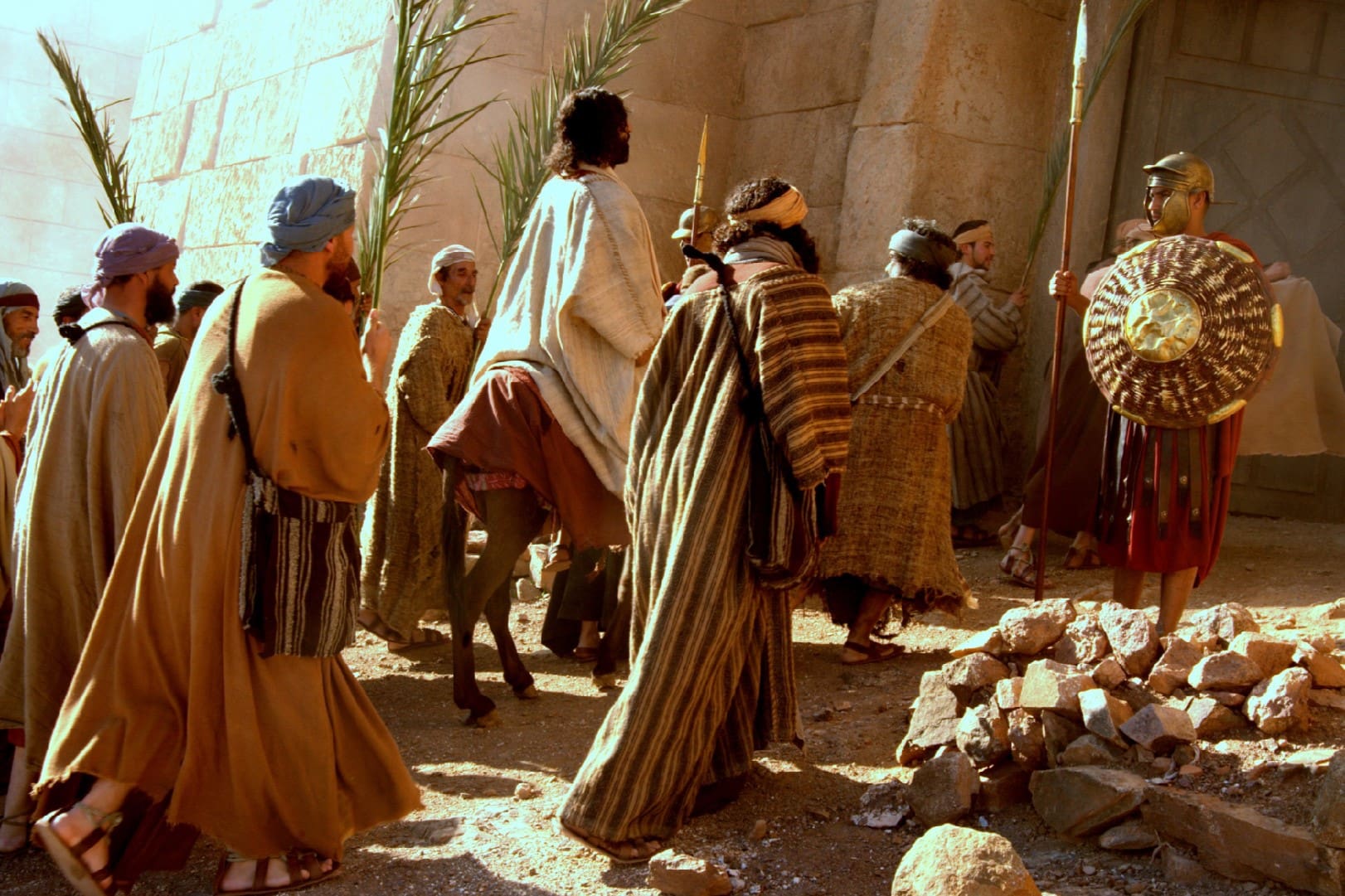
What does "Hosanna" mean?
Hosanna is a word with deep roots in both Jewish and Christian traditions. Originating from the Hebrew phrase "hoshiya na," it translates to "Save, please!" Over time, its meaning evolved from a desperate plea for help to a joyous shout of praise. In the Old Testament, it appears during the Feast of the Tabernacles, symbolizing reliance on divine salvation. In the New Testament, crowds shouted "Hosanna" during Jesus' triumphant entry into Jerusalem, marking the beginning of Holy Week. Today, it remains a powerful expression of faith, gratitude, and dependence on God, resonating through centuries of religious practice.
The Origins of Hosanna
Hosanna is a term with deep roots in both Jewish and Christian traditions. Its journey from a plea for help to a symbol of joyous praise is fascinating.
-
Hebrew Origins: Hosanna comes from the Hebrew phrase "hoshiya na," meaning "Save, please!" This phrase combines "hoshiya," which means to save or deliver, and "na," a plea or offer.
-
Usage in the Old Testament: In Psalm 118:25, "hoshiya na" is chanted during the Feast of the Tabernacles. People wave palm branches, symbolizing their reliance on God for salvation.
-
Greek Translation: The Greek translation of "hosanna" is "hsanná," used in the New Testament. This form was derived from Aramaic, the language spoken during New Testament times.
Hosanna in Christian Celebrations
Hosanna holds a special place in Christian traditions, especially during significant events like Palm Sunday.
-
Palm Sunday and Jesus' Triumphal Entry: During Jesus' entry into Jerusalem on Palm Sunday, the crowd shouted, "Hosanna to the Son of David!" (Matthew 21:9). This marked the beginning of Holy Week.
-
Historical Context: The use of "hosanna" on Palm Sunday was a deliberate act of messianic hope, recognizing Jesus as the long-awaited Messiah.
-
Christian Celebrations: In worship services and hymns, "hosanna" expresses gratitude to God for sending the Messiah.
Hosanna in Jewish Traditions
In Jewish culture, hosanna remains a powerful symbol of reliance on God.
-
Jewish Traditions: During holidays like Sukkot, "hosanna" is part of the liturgical formula for welcoming the Messiah.
-
Spiritual Significance: Hosanna serves as a call to surrender to God's authority, recognizing His provision and mercy.
Modern Usage and Significance
Despite its ancient origins, hosanna continues to be relevant today.
-
Modern Usage: In times of struggle, "hosanna" is invoked as a signal to trust in God's power to provide deliverance.
-
Liturgical Formula: The liturgical formula "hosanna" has been politicized over time, particularly during the Feast of the Tabernacles.
Scriptural References and Symbolism
Hosanna appears in various scriptural references, each highlighting its significance.
-
Gospel Accounts: In Matthew 21:9, Mark 11:9, and John 12:13, the crowd's shouts of "hosanna" during Jesus' entry into Jerusalem are recorded.
-
Symbolism: Palm branches waved during Jesus' entry symbolize victory and peace, underscoring the triumphant nature of His arrival.
Cultural Impact and Historical Events
Hosanna has left a lasting impact on both Jewish and Christian cultures.
-
Cultural Impact: Its use in various liturgical contexts has shaped how people express their faith and dependence on God.
-
Historical Events: Temple dedications and major spiritual rejoicing have been marked by the use of "hosanna."
-
Temple Dedications: In recent years, "hosanna" has been reserved for significant spiritual events like temple dedications.
Faith and Gratitude
Hosanna serves as a reminder of our dependence on God and the need to express gratitude.
-
Faith and Gratitude: It reminds believers to submit to God's authority while recognizing His provision and mercy.
-
Dependence on God: Hosanna underscores the dependence we have on God, emphasizing the need to trust in His guidance and protection.
Joyful Proclamation
Hosanna has evolved into a joyful proclamation of faith.
-
Joyful Proclamation: It is often used to express adoration and veneration towards God.
-
Biblical Context: In Psalm 118:25 and Matthew 21:9, hosanna is used to highlight its significance in both Jewish and Christian traditions.
Symbolic Meaning and Historical Significance
The symbolic meaning of hosanna extends beyond its literal translation.
-
Symbolic Meaning: It represents a cry for help, a plea for salvation, and an expression of joyous praise.
-
Historical Significance: Hosanna has been used in various historical events, emphasizing its importance in religious traditions.
Cultural Relevance and Faith in Times of Struggle
Hosanna remains culturally relevant and serves as a signal of faith in difficult times.
-
Cultural Relevance: Despite its ancient origins, hosanna continues to influence how people express their faith.
-
Faith in Times of Struggle: In difficult times, hosanna serves as a signal to trust in God's power to provide deliverance.
Gratitude and Spiritual Path
Hosanna expresses gratitude and reinforces our spiritual path.
-
Gratitude and Appreciation: It reminds believers of the many blessings bestowed upon them.
-
Spiritual Path: Hosanna captures much of what makes up our spiritual journey, leading to more joyous praise about God's love.
Hebrew Roots and Greek Transformation
Understanding the Hebrew roots and Greek transformation of hosanna helps grasp its full meaning.
-
Hebrew Roots: The phrase "hoshiya na" is composed of "hoshiya," meaning to save or deliver, and "na," indicating an offer or plea.
-
Greek Transformation: The Greek form of "hosanna" reflects its adaptation into the Aramaic language spoken during New Testament times.
Palm Sunday Celebrations
Palm Sunday celebrations are incomplete without the cry of hosanna.
-
Palm Sunday Celebrations: This event marks the beginning of Holy Week and is celebrated by Christians worldwide.
-
Messianic Recognition: The crowd's shouts of "hosanna" during Jesus' entry into Jerusalem acknowledged Him as the long-awaited savior.
Liturgical Formulae Evolution
The evolution of liturgical formulae involving hosanna reflects its cultural and historical significance.
- Liturgical Formulae Evolution: From its use in the Feast of the Tabernacles to its adaptation in Christian worship, hosanna has remained a powerful tool for expressing faith.
Enduring Significance
Despite its evolution over time, hosanna retains enduring significance in both Jewish and Christian traditions.
-
Enduring Significance: It continues to be used in various liturgical contexts, serving as a reminder of our dependence on God.
-
Faith and Dependence: Hosanna underscores the need to trust in God's guidance and protection.
-
Joyous Praise: The shift from a plea for help to an expression of praise reflects the multifaceted nature of hosanna.
-
Spiritual Rejoicing: During Solemn Assemblies and other significant events, hosanna is used to express joy and adoration towards God.
-
Historical Events and Celebrations: Hosanna has been used in various historical events and celebrations, emphasizing its importance in religious traditions.
-
Cultural Impact on Worship: The cultural impact of hosanna on worship is profound, shaping how people express their faith.
-
Faith in Times of Struggle: In times of struggle, hosanna serves as a signal to trust in God's power to provide deliverance.
-
Gratitude and Appreciation: Hosanna expresses gratitude and appreciation towards God for His grace and mercy.
-
Spiritual Path: The word hosanna captures much of what makes up our spiritual path, leading to more joyous praise about God's love.
-
Enduring Significance: Despite its evolution over time, hosanna retains enduring significance in both Jewish and Christian traditions.
The Enduring Power of Hosanna
Hosanna isn't just an old word; it's a powerful cry that has stood the test of time. From its Hebrew roots meaning "Save, please!" to its joyous shouts during Jesus' entry into Jerusalem, it carries deep significance in both Jewish and Christian traditions. Whether used in ancient temple dedications or modern Palm Sunday celebrations, Hosanna symbolizes a plea for help and an expression of praise. It reminds us of our reliance on divine intervention and the joy of recognizing salvation. Despite its evolution, Hosanna remains a vibrant part of worship, uniting believers in faith and gratitude. Its enduring relevance shows how a single word can encapsulate centuries of spiritual longing and fulfillment. So next time you hear or say "Hosanna," remember its rich history and the profound hope it represents.
Was this page helpful?
Our commitment to delivering trustworthy and engaging content is at the heart of what we do. Each fact on our site is contributed by real users like you, bringing a wealth of diverse insights and information. To ensure the highest standards of accuracy and reliability, our dedicated editors meticulously review each submission. This process guarantees that the facts we share are not only fascinating but also credible. Trust in our commitment to quality and authenticity as you explore and learn with us.


